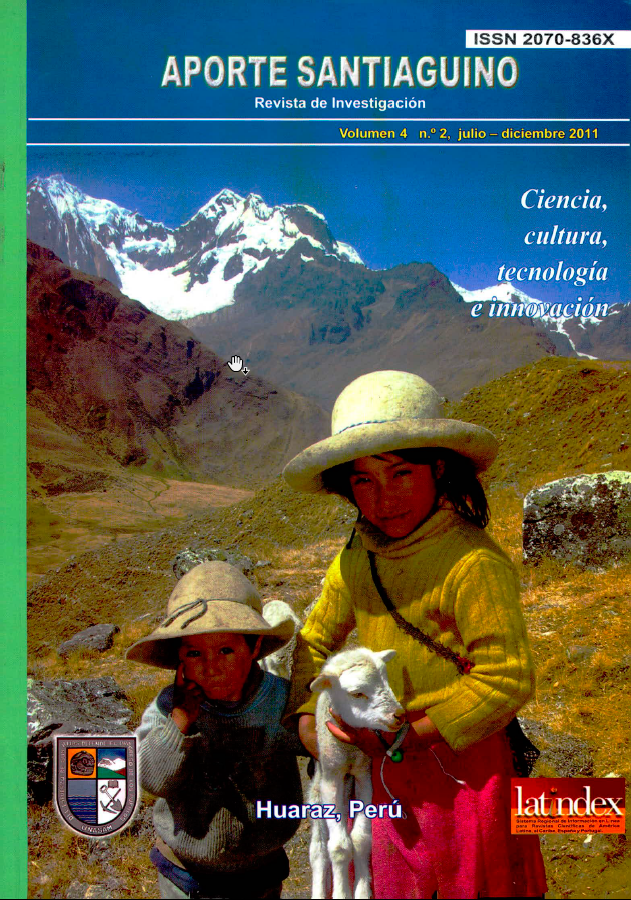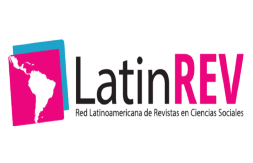Caracterización de una colección de Theobroma cacao L. en Tingo María usando marcadores moleculares ISSR
DOI:
https://doi.org/10.32911/as.2011.v4.n2.545Resumen
Cacao breeding programs focus in obtaining cacao varieties with important traits to both producers and consumers. A vital step for plant breeders is the characterization of the genetic material kept in germplasm banks in order to describe its level of diversity, and find interesting traits both morphologically and molecularly. In this way, the investigator will monitor how useful the accessions could be, determine duplications, and manage the bank appropriately. In this study, we aimed to test: the potential of ISSR (Interspread Sequence Repeats) markers to differentiate 46 cacao accessions maintained in Tingo Maria - Perú, and the similarity relationships between the accessions. In this research, the results showed that ISSR, despite its dominance nature, could establish eye-catching associations, such as, the grouping of Trinitario accessions into a common clusterDescargas
Citas
Buntjer, J.B. 1999. Cross Checker v. 2.9. Department of Plant Breeding. Wageningen University and Research Centre. http://www.plantbreeding.wur.nl/Ulesoftwarecrosschecker.html
Charters, Y.M. and Wilkinson, M.J. 2000. The use of self-pollinated progenies as 'in-groups for the genetic characterization of cocoa germplasm. Theor Appl Genet 100:160-166
Doyle J.J. and Doyle, J.L. I 987. A rapid DNA isolation procedure for small quantities of fresh leaf tissue. Phytochemical Bulletin 19:11-15.
Dirección General de Promoción Agraria (DGPA), 2007. Cacao-Chocolate Magazine. Ministerio de Agricultura. Año 1 -Boletín 1. Diciembre.
Gonzales L., M.T.1996. Caracterización Botánico Agronómica ex situ de 25 clones internacionales de cacao (Theobroma cacao L.). Tesis para optar el titulo de Ingeniero Agrónomo. Facultad de Agronomía. Universidad Nacional Agraria de la Selva. Tingo — María. Huánuco.
Ghislain, M.; Zhang, D.; Fajardo, D.; Huaman, Z. and Hijmans, R.J. 1999. Marker assisted sampling of the cultivated Andean potato Solanum phureja collection using RAPD markers. Genetic Resources and Crop Evolution 46:547-555.
Guiltinan, Mi. 2007. Cacao. In: Pua E.C. and Davey M.R. (Eds.) Biotechnology in Agriculture and Forestry. Transgenic Crops V. Section 111.2 pp. 497-518. Springer-Verlag, Berlin Heidelbelg
Marita, J. M.; Nienhuis, J.; Pirex, J. L. and Aitkend, W. M. 2001. Analysis of Genetic Diversity in Theobroma cacao with Emphasis on Witches' Broom Disease Resistance. Crop Science. Volumen 41 pp. 1305-1316. Crop Science Society of America.
N'Goran, J.A.K.; Laurent, V; Risterucci, AM. and Lanaud, C. 1994. Comparative genetic diversity studies of Theobroma cacao L. using RFLP and RAPD markers. Heredity. Volume 73, pp. 589-597.
Piñan R., A. 1993. Caracterización Botánico Agronómica ex situ de 12 clones internacionales de cacao (Theobroma cacao L.). Agronomic Engineer Thesis. Facultad de Agronomía. Universidad Nacional Agraria de la Selva. Tingo — María. Huánuco.
Rohlf, F.J., 2000. NTSYSpc Numerical Taxonomy and Multivariate Analysis System, Version 2.1. Usen Guide. Department of Ecology and Evolution. State University of New York, Stony Brook, NY
Spooner, D.; Van Treuren, R. and De Vicente, M.C. 2005. Molecular markers for genebank management. IPGRI Technical Bulletin No. 10. International Plant Genetic Resources Institute, Rome, Italy. 136 pp.
Zhang, D.; Arevalo-Gardini, E.; Mischke, S.; Zúñiga-Cernades, L.; Barreto-Chavez, A. and Adriazola A., J. 2006. Genetic Diversity and Structure of Managed and Semi-natural Populations of Cocoa (Theobroma cacao) in the Huallaga and Ucayali Valleys of Peru. Annals of Botany 10.1093/aob/mc1146.
-----------------------------------------------------------------------------------------------------------------
Correspondencia:





















